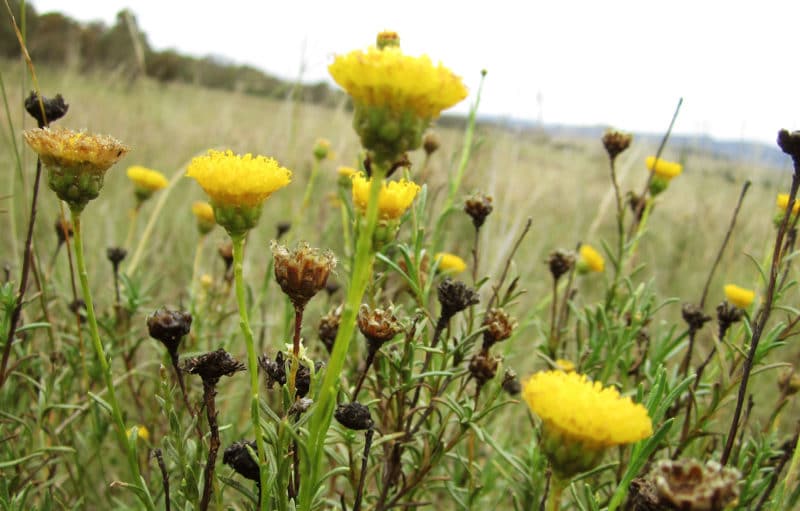Page updated: 23/02/2023
VicForests are repeatedly accused of breaching the laws supposed to protect Victoria’s native forests, water catchments and threatened plants and animals.
In the last six months, the Supreme Court has ruled VicForests to be in breach of Victorian law in three separate litigations.
A Supreme Court case by Warburton Environment was successful in establishing VicForests’ breaches of the law, including a failure to adequately survey for, and protect, populations of the endangered Tree Geebung (Persoonia arborea) prior to and during logging operations.
The Tree Geebung is a magnificent long-lived understorey species which takes the form of a large shrub or small tree and is endemic to Victoria’s Central Highlands. The honourable Justice Garde delivered his judgement in October 2022, which included a statement that “The precise extent of the loss will never be known, but on the basis of recent records is likely to amount to many hundreds or even thousands of mature trees“.
Two Supreme Court cases were also brought upon VicForests in relation to the endangered Greater Glider and the Vulnerable Yellow-bellied Glider, by community groups Kinglake Friends of the Forest and Environment East Gippsland. Both cases were successful in establishing VicForests’ breaches of the law, relating to flaws with VicForests’ pre-harvest surveys for these species and their inability to adequately locate these threatened gliders and their home ranges prior to conducting logging operations. They were also successful in establishing VicForests’ failure to adequately protect gliders where they had been recorded.
The honourable Justice Richards delivered her judgement in November 2022, stating that “The ecological evidence was clear – greater gliders that live in coupes that are harvested in accordance with VicForests’ current practices will probably die as a result of the harvesting operations“. The same was said by Justice Richards in relation to the fate of Yellow-bellied Gliders faced with VicForests current harvesting operations.
In 2021, the ABC’s 7:30 report aired damning allegations of widespread, systemic illegal logging by VicForests.
Logging forests on slopes of more than 30 degrees is illegal, but the ABC investigation found VicForests had logged up to 321 hectares of land beyond that threshold. After investigating and confirming two of 252 alleged breaches, the Office of Conservation Regulator (OCR) then neglected the other 250 allegations.
Until now VicForests has had carte blanche to destroy the community’s natural assets, all to meet some dodgy contracts signed decades ago to feed pulp and timber mills.
They haven’t turned a profit in years, and the government hands out millions of taxpayer dollars to subsidise their out-of-control operating costs. Despite these handouts, VicForests annual report for 2022 still conceded a loss of $54.2 million! The report largely attributes VicForests’ financial struggles to the direct and indirect costs of defending litigation, brought upon VicForests by small community groups, with these direct costs tallied to $10.4 million. VicForests chooses to blame such litigation for its financial losses rather than to operate within the confines of what is required under Victorian law.
They cut every corner they can, desperate to squeeze any last logs out of our sensitive forest ecosystems.It’s why after the devastating 2019/20 Black Summer fires, they plundered critical refuge areas of wildlife that lost up to 80 per cent of their range. It’s why they impatiently which have now been identified and zoned as Special Protection Zones. It’s why they’re allegedly illegally logging steep slopes and high conservation value forests in the Central Highlands – home to the world’s tallest flowering plants.
The Victorian Government needs to lay out a clear plan that brings forward Victoria’s transition out of native forest logging and protect our natural heritage.
In Western Australia, the government has recognised how outdated the industry is, and has brought forward the phase out of logging to 2024.In Victoria, the government takes the law into its own hands, going so far as to redesign the Code of Timber Production to optimise illegitimate logging. This year we saw changes that granted loggers access to threatened wildlife habitat and important cultural and recreational sites.The thing is, our government knows there’s no future in native logging – they’ve already committed to phasing it out completely by 2030. The time for calling it a legitimate sustainable operation has passed.
“We have politicians saying we have the best regulated forests in the world, well frankly that’s b*##$%^!t” – Professor David Lindenmayer, AO, Australian scientist and academic.
As a start, we want to see the Victorian Government:
- Release a detailed transition plan (the current forestry plan is only four pages and contains no detail)
- Close VicForests and install an independent, registered liquidator to wind down its operations
- Establish an independent, science-led transition authority to assist with the transition
- Establish the Office of the Conservation (OCR) outside of (The Department of Energy, Environment, and Climate Action) DEECA as a truly independent regulator with a sufficient budget to allow for all operational needs
- Independently and publicly review wood and timber yield segments against future fire predictions, climate change and the exit target in the Victorian Forestry Plan.
VicForests has a terrible track record, and it keeps getting worse. In November 2021 the ABC revealed that VicForests hired a private investigator to conduct surveillance on conservationists and academics the agency argues are trying to “discredit” it. If VicForests can’t distinguish between being discredited and being held to account, or ignoring standard codes of conduct for public servants, they certainly can’t be trusted in our forests.If they played by the rules, they wouldn’t be facing endless court battles, and sending their bills to the taxpayer.These issues are all symptoms of a mismanaged industry that continues to do more harm than good. Scientists, conservationists and the community have been stating these facts and raising these concerns for decades.
It has never been clearer that we MUST bring forward Victoria’s transition out of native forest logging.
